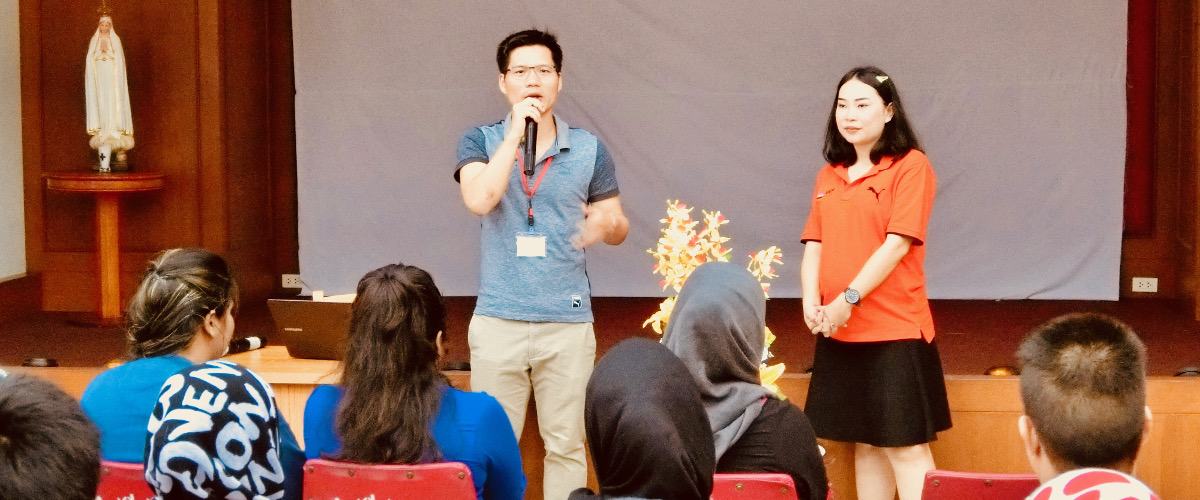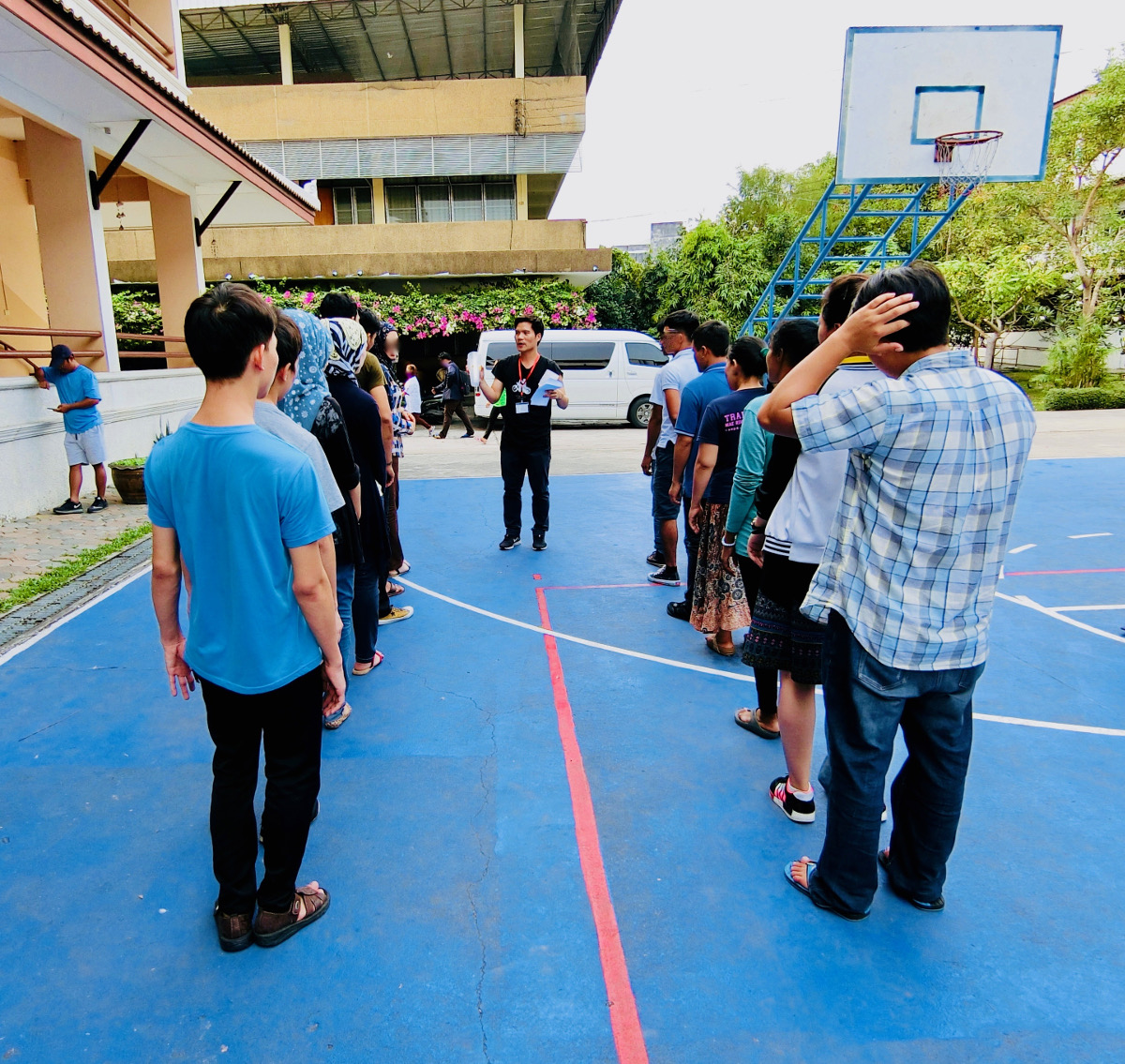
It has been a year since the Jesuit Refugee Service (JRS) Thailand launched its Urban Education Project. The year has been full of challenges, adjustments and hopes for the project, but it has also been filled with the hopes and dreams of refugees who want a chance in life and will do whatever it takes to achieve their dreams.
“In Thailand, not all asylum seeker and refugee children can get an education due to language barriers and the lack of resources,” shared JRS Asia Pacific Regional Advocacy and Communications Officer Elphie Galland. Indeed, children aged 15 to 18 tend to fall through the cracks as they find themselves unable to integrate into Thai public schools. As a result, they tend not to be able to get an education during their formative years in Bangkok.
JRS Thailand launched the Urban Education Project for Refugees in January 2017 mainly to assist those who are excluded from existing educational services in Thailand. The project provides skills training, including language and vocational courses. Each batch of students attends a six-month course in which they learn basic Thai and English and an optional vocational skill such as computer skills, beauty treatments or sewing. The courses are scheduled from Monday to Friday from 9 am to 3 pm.
There is a special focus on youth and unaccompanied minors who depend upon themselves for daily survival. JRS Thailand recognises that they are particularly vulnerable and the project gives the youth in the refugee community a chance to study.
“JRS has always placed an emphasis on ensuring that the most vulnerable have access to an education, regardless of their circumstances,” said Galland.
The project has already seen success with 33 students completing the courses from two different batches last year. The first batch of students graduated in March 2017, while the second batch graduated in November 2017. This year, for the first batch alone, there are already 32 participants from nine different countries. They began their courses in January and will finish in June. Already the Education Officer is already reviewing applications for this year’s second course, which begins in July.
Even though priority is given to youth between the ages of 16 and 24, this year, JRS decided to open the project to older asylum seekers and refugees given their vulnerability and eagerness to learn. So now, the participants vary in age between 16 and 55 years!
Besides the free courses, JRS Thailand provides the students with a financial package to support their expenses for housing, food and transport throughout the programme.
The project also promotes awareness and understanding in the Thai community of the dilemma of asylum seekers and refugee children. One way it does this is to arrange for the students in each batch to meet students in Thai schools. One of these Thai schools last year was the Military Technical Training School and this collaboration will continue in 2018.







